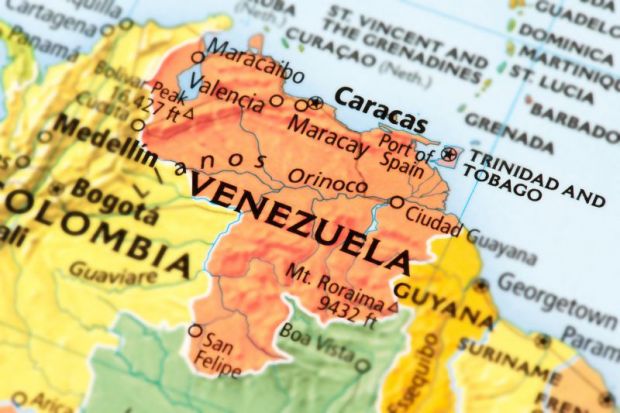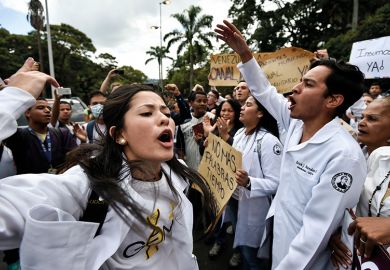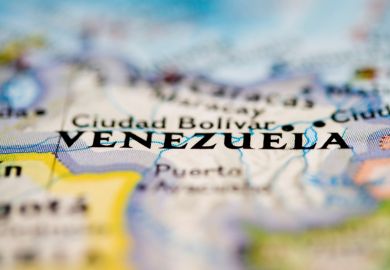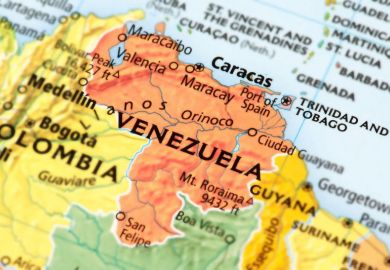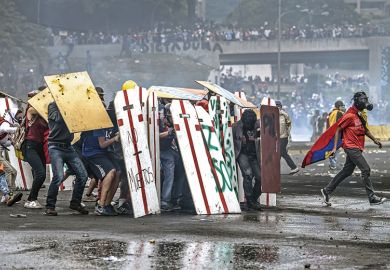Universities in Venezuela are at risk of closure and already are being forced to cancel entire courses following a mass exodus of staff and students fleeing the country’s ongoing political and humanitarian crisis.
Speaking to Times Higher Education, one senior member of staff at the Central University of Venezuela – the nation’s oldest and most prestigious institution – said that some departments within its school of modern languages, including English and German, had been closed on account of there being no teachers left.
Years of “budgetary suffocation” coming up against spiralling inflation rates had left the top institution with “no resources left to speak of”, Moraima Guanipa, head of UCV’s School of Journalism warned.
National universities in Venezuela such as UCV receive the vast bulk of their income from the government, but Professor Guanipa said that the amount promised had fallen steadily over the past decade, making it impossible to recruit more staff to fill vacancies.
“Typically only around 35 per cent of the requested budget is assigned,” she said. “[Last year] the budget deficit was more than 60 per cent, for 2019 it is 90 per cent...we are always on the verge of…closure.
“Already some schools, including the school of modern languages, have [recently] had to close for lack of teachers.”
Leonardo Leon, a Venezuelan journalist based in Mérida, said that the problem was not limited to UCV. At the University of the Andes “around 80 per cent of students and 65 per cent of professors” have disappeared from campus, he said. “There is a high rate of desertion…with no food [and] no supplies, the majority have left the country.”
Currently, a university professor at the top of the academic career ladder can expect to earn close to $10 (£8) per month. The majority of teachers, lecturers and other university staff earn less than $6 per month – barely enough to cover public transport costs to get them to work, according to Professor Guanipa.
Universities have made it no secret that staff are encouraged to find secondary sources of income.
“Their fears are compounded by the fact that there is also a worrying decrease in student enrolment,” Professor Guanipa added. In her own department, the school of social communication, just 669 students enrolled last year – down from more than 1,500 a decade ago.
In January, Venezuela’s university rectors’ association, Averu, called for an intervention from United Nations leaders after dozens of people were reportedly killed during mass protests sparked by a political stand-off between president Nicolás Maduro and his political opponent Juan Guaidó.
The crisis has prompted warnings from the sector that universities are close to breaking point.
As to whether education in Venezuela was capable of recovery, Mr Leon said: “If there is political change, yes.” But at present, “the mistreatment of professors…is without limits”.
Register to continue
Why register?
- Registration is free and only takes a moment
- Once registered, you can read 3 articles a month
- Sign up for our newsletter
Subscribe
Or subscribe for unlimited access to:
- Unlimited access to news, views, insights & reviews
- Digital editions
- Digital access to THE’s university and college rankings analysis
Already registered or a current subscriber?
